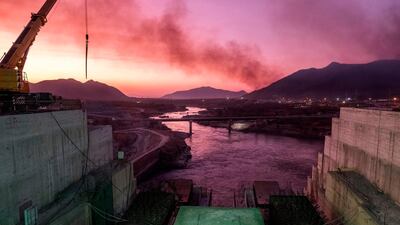Earlier this week, United Nations Secretary General Antonio Guterres issued a stark warning about our new year saying that "tensions are at their highest level this century". It is fair to say the world we live in grows more complex every day and our problems more intractable, so how can we hope to solve those issues?
As individuals we will have to find deeper reserves of emotional intelligence and be better skilled than ever before to survive, let alone thrive. The same goes for societies and states, who will be required to develop innovative solutions to overcome the many roadblocks that stand in their way. The old rules might need to be redrawn at a rapid pace to do so, particularly those affecting the established principles of statecraft and diplomacy.
These pages have hosted many diverging views on that last point as contributors have often questioned whether the existing diplomatic architecture is strong enough to solve the many problems we face.
Our columnist Sholto Byrnes has repeatedly made the case for urgent reform to the UN, the body we all recognise as having the most power to affect potential change. He advocates for reform principally because the laws of governance for our 21st century world were drawn up almost 75 years ago. "Why should a settlement from 1945 stand unaltered today?", Byrnes has quite reasonably asked in the past. He returned to the subject this week while considering this present period of heightened US-Iran tensions, concluding that multilateralism needs a reboot.
Others, such as former diplomat Tom Fletcher, have a more benevolent view of the UN, reminding us that "no one has yet come up with a better idea for global co-existence and we have subcontracted to the UN many of the biggest challenges facing humanity".
There is merit in both schools of thought but there is also a new front of statecraft emerging along a third track in this region and elsewhere. This path does not seek to supplant the old order but to supplement it.
It is a welcome addition in the sense that it recognises the “turmoil” to which Mr Guterres referred to in specific reference to US-Iran tensions and preferences a mixture of restraint and dialogue to secure progress.
This week, the foreign ministers of seven nations – Saudi Arabia, Jordan, Djibouti, Sudan, Somalia, Egypt and Yemen – met in Riyadh as part of a new initiative to improve co-operation in the areas bordering the Red Sea and the Gulf of Aden. The group of nations has vowed to work together on matters such as economic growth and security, as well as ensuring stability. The seven-member bloc signed a founding charter at the meeting, while Prince Faisal bin Farhan, Saudi minister of foreign affairs, also said that the kingdom was "keen to confront the challenges that are surrounding us from all sides".
It is this realism and recognition of both threat and opportunity, married with forms of diplomatic crowdsourcing and brainstorming that are likely to bring the greatest dividends in the decade ahead.

On a similar track, on Thursday, the fourth technical meeting between Egypt, Sudan and Ethiopia will begin in Addis Ababa. The water ministers from each country will seek progress on the Renaissance Dam issue in Ethiopia. Observers from the US and the World Bank will also be present at the latest round of talks.
It is safe to say that the road to this point has not been straightforward.
Dialogue between the three parties has brought periods of stagnation, reflection and latterly progress over a protracted period. One of the many lows of Mohammed Morsi’s disastrous brief period as president of Egypt was to suggest the use of force to resolve the issue of fair water supply.
The most recent rounds of talks have elicited a “convergence of views”, however, as the trio of nations seek an appropriate path forward.
An additional buffer has been inserted into the dialogue, which allows for another party to mediate from next week should agreement not be reached over the key points of the operation of the dam and the filling of its reservoir. Few believe it will be easy to balance the differing needs and realities for each country. But the path the trio are on suggests agreement is edging into view.
Both these discreet and geographic groupings over the Red Sea and the Nile Dam are examples of a new and positive phase of diplomacy.
As traditional alliances fade, America’s role in the world changes and the question of who manages complexity in a multipolar world gathers strength, progress will be achieved by those who seek to build commonality and partnerships. In the long-term, those who tactically meddle or sow discord and division will not advance their cause. Consensus is never easy to achieve and alliances are hard to forge, but both can help defuse combustible situations and, more importantly, ensure genuine and authentic change within a rules-based order.
Nick March is an assistant editor-in-chief at The National


